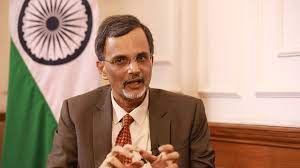10 Best Personal Finance Books – Must Read
Personal finance involves intelligent money management. An informed personal finance manager can accurately handle investments, insurance, and savings and grow their finances.

In personal finance, we focus on budgeting for our own needs and those of our families. A person with a firm grasp of personal finance is in a strong position to control and increase their money, including investments, insurance, savings, expenses, etc.
To achieve one's short-term and long-term financial objectives, good personal finance management is essential. Don't worry if you have no idea how to manage your money or if you'd like to learn more. The top personal finance books are listed in this post to help you reach your financial goals.
1. The Total Money Makeover (Author: Dave Ramsey)
The Total Money Makeover is a self-help book with numerous real-world examples of individuals who followed Dave's infant steps and achieved success. The book is one of the best finance books because it contains a great deal of encouraging assistance, suggestions, and advice.
A lack of desire and support to make the necessary lifestyle changes is one of the most significant obstacles to gaining complete control of one's finances. This is one of the best books on personal finance that can give you a new perspective on your objectives and the rewards you can earn by achieving them.
2. You’re So Money: Live Rich, Even When You’re Not (Author: Farnoosh Torabi)
This is one of the most significant works by Farnoosh Torabi. She makes the complexities of finance and accounting appear simple. The author emphasises prioritising spending based on one's greatest aspirations.
This humorous book encourages its readers to fully experience life. This book is the ideal combination of innovative ideas and a bold approach to educating an underserved generation about personal finance. The writing manner of Farnoosh is engaging, direct, and potent. Additionally, she advises readers not to be cheap. As you read, you'll discover how entertaining it can be to live and expire wealthy.
3. I Will Teach You to Be Rich (Author: Ramit Sethi)
This is one of the finest books on personal finance and a must-read for those aged 20 to 35. It concentrates on strategies for wealth creation in personal entrepreneurship.
This book emphasises primarily on the four pillars of personal finance: banking, saving, investing, and budgeting. It is a practical, step-by-step guide to financial accomplishment. This is the book to choose if you are a millennial.
4. Rich Dad Poor Dad (Author: Robert Kiyosaki)
If you're looking for a comprehensive guide to personal finance, look no further. It's the tale of two fathers, one of which had a plethora of credentials yet didn't finish high school. The father died leaving his son nothing but a mountain of debt despite his extensive education.
The school dropout, on the other hand, bequeathed his son a business empire. This book teaches vital lessons about financial success by illuminating the author's path to affluence after he abandoned his formal education.
5. The Millionaire Next Door (Author: Thomas Stanley and William Danko)
This book illuminates the investing approach of savvy investors. It discusses how millionaires are deliberate about generating wealth and live a parsimonious lifestyle. The author analyses the habits of numerous American millionaires who amassed fortunes without generating headlines.
According to the author, the majority of wealthy people avoid flaunting their fortune and prefer to live well below their means. This allows them to amass wealth over time.
6. Your Money or Your Life (Author: Vicki Robin)
This is more than just another book on personal finance. It's a guide to making your life look the way you want it to. It criticises the practise of materialism, which depletes not just our wealth but also the Earth's scarce resources.
The book as a whole promotes the idea that cheapness is better and that cutting costs wherever possible would lead to greater happiness. The nine-step plan laid out in this book could be your ticket to financial independence.
7. The Little Book of Common Sense Investing (Author: John C. Bogle)
This book is written by John C. Bogle, founder of the Vanguard Group, the largest ETF company in the world. The author focuses on index investing, stock selection strategies, and investing fundamentals. This book provides guidance on how to implement proven investment strategies into your portfolio.
8. The One-Page Financial Plan (Author: Carl Richards)
The One-Page Financial Plan can help you determine your financial priorities and goals. The simple methods of Carl Richard teach you how to prioritise your life goals and discover how to attain them.
The author has written this book in very simple language, free of complex financial jargon, making it appropriate for all types of readers.
9. You Need a Budget (Author: Jesse Meacham)
The method detailed in this book enables a person to live a little more freely and alleviates the stress associated with a lack of funds. The author's tried-and-true technique of four fundamental rules aims to transform money management from a crippling burden into a powerful weapon that places the individual in complete control of his or her life.
The book explains how to escape debt and stop living paycheck to paycheck.
10. The Motley Fool. You Have More Than You Think (Author: David Gardner and Tom Gardner)
This book is a resource for anyone endeavouring to strike a balance between their lifestyle objectives and their financial realities. This book uses a humorous tone to convince the reader that investing is not all that difficult.
The beginning of the book urges readers to save money and pay off their credit card debt. The article then briefly discusses a number of fundamental investment concepts, including the fact that mutual funds do not outperform the market average, etc.
Conclusion
We trust that these books, which are some of the best books to read on personal finance, can assist you with your finances. These publications serve as a foundation for budgeting, investing, and saving.
Also Read : Benefits of Holding Stocks for the Long-Term















.jpeg?updatedAt=1698674189520)




